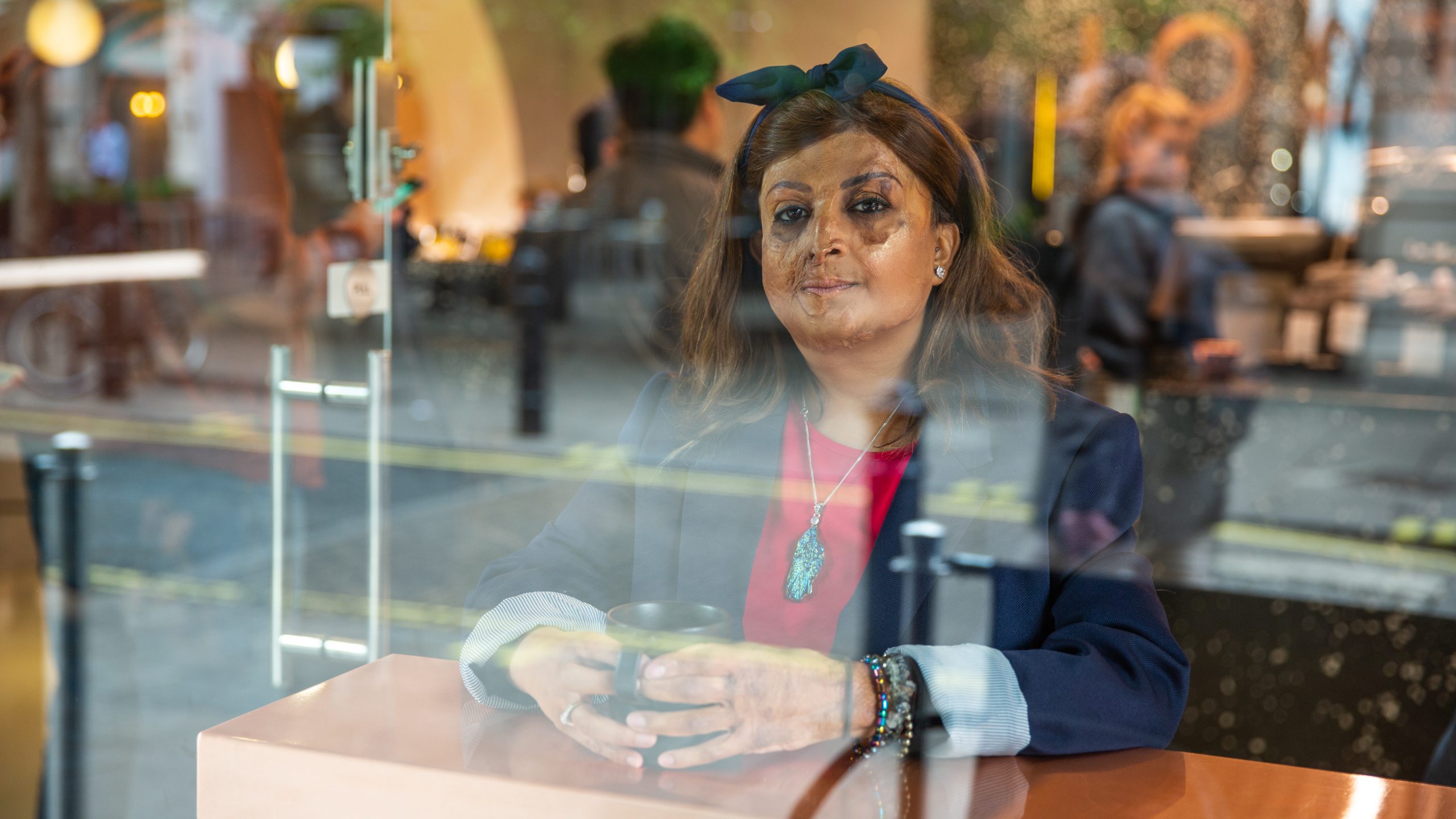When Tulsi was 10 years old she was in a plane crash in which she lost her immediate family and sustained second and third degree burns to 45% of her face and body. For years Tulsi was bullied for how she looked, which affected her mental health and led to feelings of low self-worth.
“I couldn’t comprehend the extent of the accident and just how much my life had changed. I endured bullying and staring. I couldn’t understand what they were staring at. I accepted the fact that I looked different, but because I couldn’t see my face, I forgot I had burns.”
Tulsi says that throughout her recovery, she was affected by the negative reactions of others.
“I associated my scars with being ugly. I had no self-esteem and no self-confidence. I struggled to feel good about myself. I never felt beautiful, or accepted compliments about how I looked. I looked in magazines and read about celebrities and I wanted to look or be like them. They were beautiful, and I wanted to feel what that was like.”
However as Tulsi got older and started to meet positive people with visible differences, her own confidence grew. Yet she still has to deal with stares and comments.
“Every day people stare at me. People need to be aware of how that makes someone with a disfigurement feel. Having a disfigurement means never having a day off. I don’t get to take my scars off and forget about them. Every day when I leave my house I need to check in with myself to see how I am going to handle staring or comments people make. We need to get more awareness and have equality.”
Looking different can be really hard to comprehend. You have to find your superpower and use that to shine. My superpowers are my scars – they speak louder than I do.
Tulsi’s visible difference has also affected her career. After initially working in the hotel and tourism industry, she gave up on that career after experiencing hostility.
“One company told me that my face didn’t fit their company. Another tried to make me work as a chamber maid, where I would be out of public view, instead of front of house which is where I wanted to be. I was gutted. It made me change career. I tried retail but it was the same kind of attitude, so I gave up on that too.”
These days, Tulsi is much more confident and uses her experiences to help others, including as a model for Avon which has a corporate partnership with Changing Faces.
“I have now accepted my scars and wouldn’t want to change them now. I want to portray them in a positive light. I wear my scars with pride as each has its own journey and story to tell. They decorate my body like precious gems.
“Knowing you are not on your own is crucial. I would go to the supermarket and feel like the only one who looked like this. It would be great to see better representation of people like me in films, TV and advertising. We are part of society, so we need to be represented.
Looking different can be really hard to comprehend. You have to find your superpower and use that to shine. My superpowers are my scars – they speak louder than I do; I am wearing my story so to speak.”
“I feel empowered to be an Avon model. Not only does Avon support and empower women, but they represent diversity so well. Avon is a brand, which has stood the test of time, and I think that is due to its inclusivity and accessibility.
“I felt so comfortable and respected whilst at the recent photoshoot for their new campaign and that made me feel so good.”
